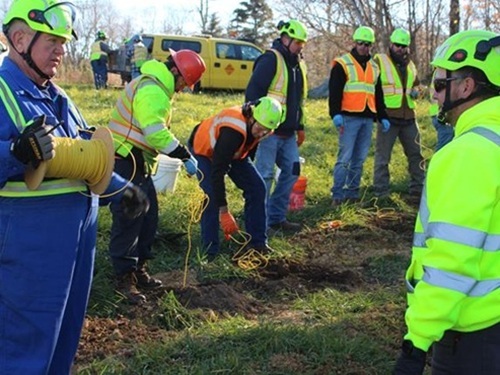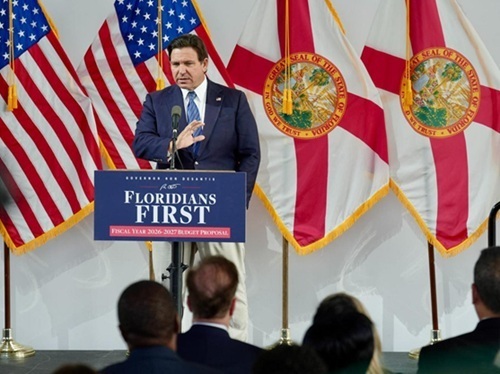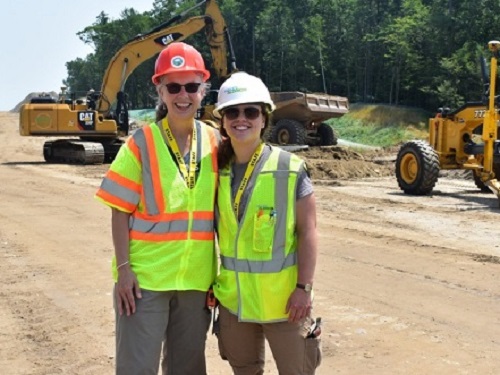The University of New Hampshire or UNH has been hosting a unique week-long “bridge project” – funded by the Federal Highway Administration and the New Hampshire Department of Transportation as part of the National Summer Transportation Institute or NSTI program – for several years to introduce teenaged students to the educational opportunities and careers available in the transportation industry.
[Above photo by UNH]
Two UNH graduates – Lisa Nash, Class of 1989 (at left above), and Hannah Miller, Class of 2021 (above at right) – developed and teach this annual “bridge project” summer program at the UNH Tech Camp; a camp offered at no cost to participants with all experience levels welcomed.
In addition to this bridge project, the FHWA and New Hampshire DOT’s NSTI also fund a weeklong program called “Transportation Engineering,” also offered at no cost to participants.
Focused on the many and varied engineering principles that go into designing and constructing a bridge, the UNH bridge project features an array of hands-on activities, demonstrations, field trips and guest speakers.
“The overarching goal is to help students deepen their critical thinking skills and learn to ask insightful questions,” explained Nash, a middle school science teacher in Dover for the past 35 years, in a UNH blog post.
“Like all Tech Camp programs, we use a project-based learning format that engages students in activities that explore real-world problems and challenges,” noted Miller, a geotechnical engineer at the Boston-based consulting firm Haley and Aldrich, Inc.
“This year, we focused on two current bridge projects underway in New Hampshire: a new exit ramp and bridge being built on I-93 in Derry and a bridge rehabilitation project in Allenstown,” she said.
Over the course of the week, students got a chance to survey each of these sites – both on foot and via drone – and hear directly from experts in the field about the construction process and how they make key engineering decisions.
Lessons in the field are paired with classroom activities and guest speakers covering topics that include geotechnical and structural engineering; testing and analyzing building materials; assessing the environmental impact of a construction project; and using computer software to test how compression and tension factor into the bridge design process.
As a final project, students each chose one of the sites visited as the focus of a scale model they will build and present to the class. Students get to play the role of a civil engineer who is in charge of a large, multifaceted project and use real, site-specific information to make data-informed decisions on the design and construction of their own bridge.
 States
States
NCDOT Staff Participate in ‘Explosive’ Technical Training
December 19, 2025 States
States

